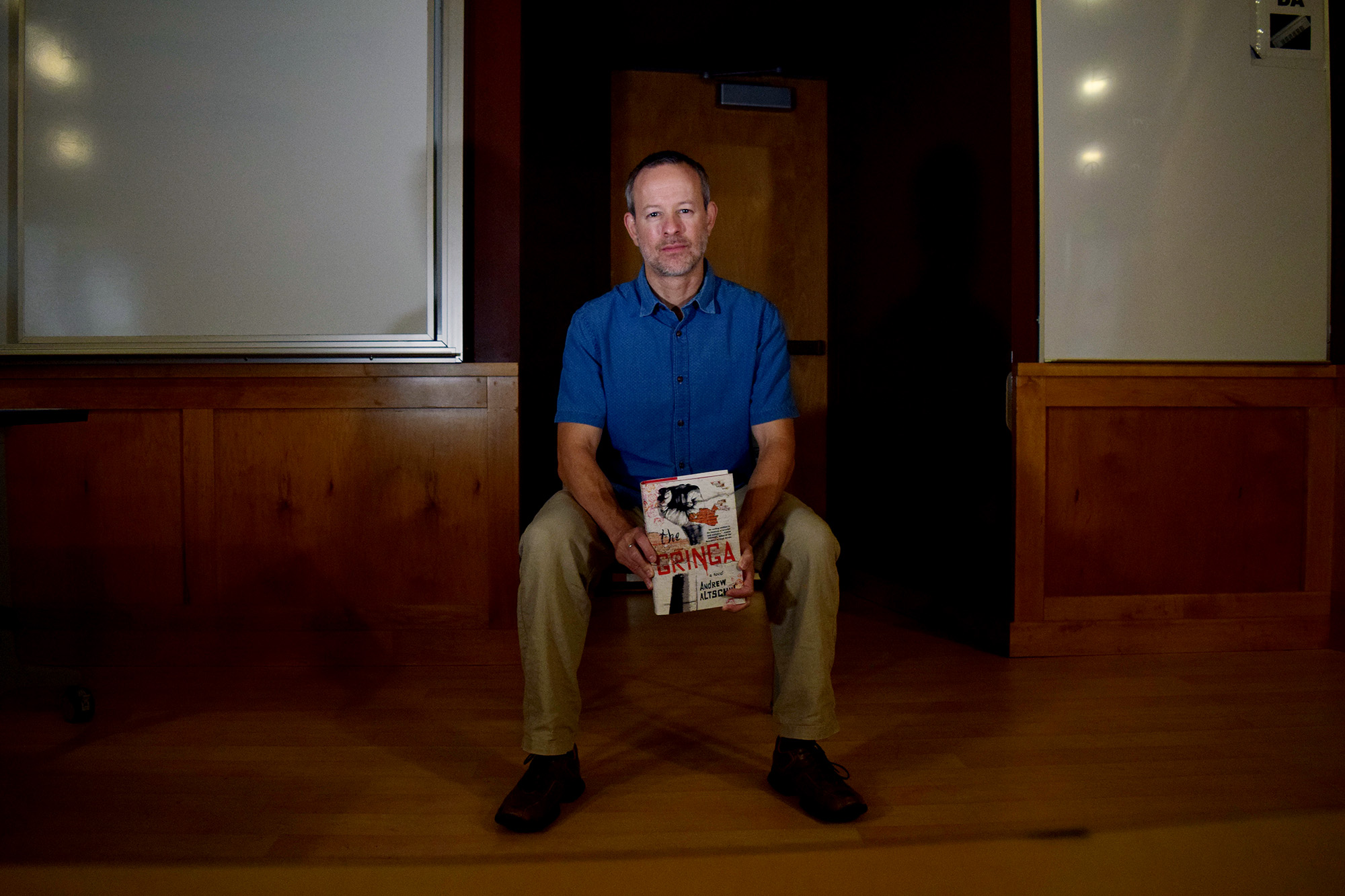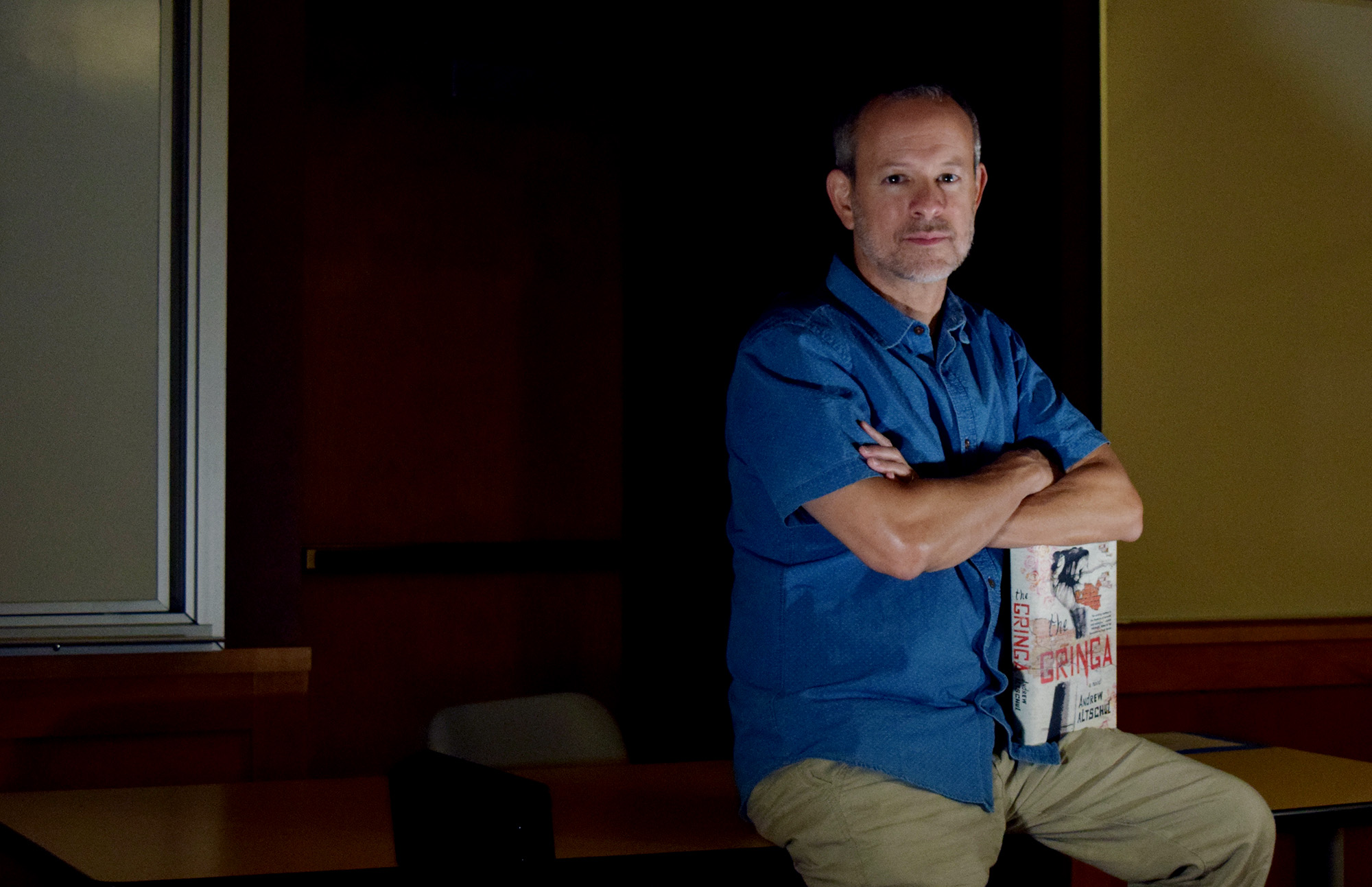Andrew Altschul, CSU professor, author, describes launching novel during pandemic, adapting
The outbreak of COVID-19 in March set the stage for a summer at home for most people, including Andrew Altschul, who had spent the last eight years writing a novel, which he expected to publicize heavily with a tour of in-person reading events.
Instead, it would have to launch to a public sheltering in place.
Altschul is author of The Gringa, published on March 10. He also is a professor and the director of creative writing in the Colorado State University Department of English.
By mid-April, Altschul had spent a month of 14-hour days on his computer trying to “rescue my book from disaster” and learning how to quickly transition his students to online learning mid-semester.

“I was on the road promoting the book when the World Health Organization declared a pandemic,” Altschul said. “Six people came to the reading that night.”
He spent the next four days traveling from reading to reading, only to have them canceled as he arrived, or just before — 15 publicity events for The Gringa, spanning March through May, were scrapped within a week. Along with them, Altschul feared, would be the eight years he spent writing his novel.
“Writers were just seeing efforts to publicize evaporating,” he said. “A lot of us are still worried that these books we’ve spent our lives on are going to vanish.”
A bookstore in Providence, Rhode Island, Twenty Stories, decided to move forward with its scheduled reading from The Gringa on March 13, but they held it live on Instagram, with Altschul and the owners in the store. The digital event garnered more than 250 attendees — a welcome sign that the book might enjoy a broad reach after all.
Making lemonade
“We made lemonade out of lemons and it was fun,” Altschul said. “250 attendance is substantially larger than the biggest reading I’ve ever done.”
Since then, he said, he’s had dozens of online events, as writers and bookstores have banded together to hold digital readings, happy hours and other online opportunities for books to be shared and promoted.

In April, the writer Mary South founded what would become Lockdown Literature — a group of authors publishing books during the pandemic. Altschul was one of the earliest members and has helped to organize and promote fellow writers. The group has grown to more than 90 participant writers, with an Instagram page featuring author videos and a weekly reading series on Facebook Live. Lockdown Lit @ Lunch is hosted by the group’s official bookseller, San Francisco’s The Booksmith.
“It started out really as a support group with an email chain where authors could communicate and commiserate,” Altschul said with a chuckle.
But many of the group’s writers have published to national and international attention, including Altschul. The Gringa so far has garnered reviews from The Times of London, The New York Times, The New York Review of Books and the Los Angeles Times among others.
Community impact
“It’s always hard to know if our digital banding together has spurred all this,” Altschul said, “but as far as a community it’s been hugely successful. At the risk of abusing the metaphor, I think we’ve moved the ball forward, but I don’t know if we’ve spiked it in the endzone just yet.”
Altschul has remained in close contact with many other writers whose books have published during COVID, “all acutely affected. Everything was a giant question mark, and in many situations it still is.”
Whether or not the online model invigorates book popularity long-term, Altschul said, adaptability will continue to be important, and so will community.
“Mostly I’ve been conversing online with other writers and there really has been a heart-warming community among us,” he said. “Writers I knew and ones I didn’t are reaching out to each other in solidarity, with offers for help and exchange of ideas to weather the virus.
“It’s hard to know how to feel about recent rave reviews,” he said. “I sort of whipsaw between feeling flattered and really guilty about caring about something like my own writing career in the face of global pandemic.
“Part of me wants people to read it and part of me thinks it’s absurd to expect that,” he said. “At the same time, it’s a great time to pick up a book.”
For fall 2020, Altschul returned to teach an undergraduate literature survey and a graduate fiction workshop, both face-to-face, observing all the social distancing and safety protocols of the new normal.
